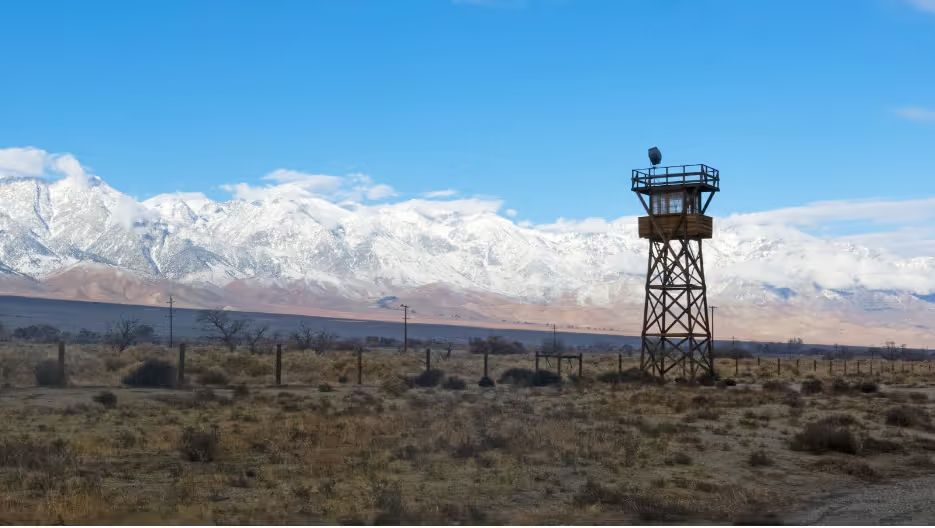Manzanar, Diverted When Water Becomes Dust Lesson Plan | Resistance & Coalition Building for Environmental Justice
Overview

Manzanar, Diverted: When Water Becomes Dust, a documentary film by Director/Producer Ann Kaneko and Producer/Impact Producer Jin Yoo-Kim, tells the story of historical dispossession: dispossession of Indigenous lands; forced removal and incarceration of Japanese Americans during World War II; and extraction and commodification of natural resources, which has adversely impacted ranchers and farmers. In the present, three communities rise up in resistance and form coalitions to defend, sustain, and protect land and water rights. This lesson provides a critical framework for understanding and analyzing the historical human-environment interactions related to forced removals, specifically at Manzanar and Payahuunadü. Understanding this history will provide a foundation to identify and analyze the forms of resistance like nature, joy and humor.
This lesson looks to the past so that students can take action for social and environmental justice in the present. Students will make connections to the environmental justice movement and will learn about the Principles of Environmental Justice and the Principles of Working Together. Students will then directly apply and utilize research skills and community knowledge to begin to build environmental and climate justice campaigns as a culminating project. The lesson is interdisciplinary, and can be completed over three to four 45-minute class periods with optional homework in between.
